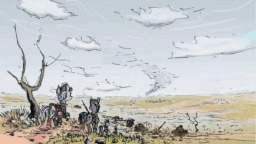
Afterward
The Great War in Equestria might rightly be said to bear more resemblance to World War II than to World War I, at least in terms of the reasons for the conflict. After all, the Second World War, much like the Equestria Great War, did not feature a great deal of ambiguity as to who the bad guys were. The Equalists were a regime equally repugnant to the Axis Powers. In fact, the Equestrian Great War was even less complex than World War II, as there was no need to ally with a power equivalent to the Soviets (who were every bit as despicable as the Nazis) in order to win.
And yet, I chose World War I as my basis for the combat of the Equestrian Great War. Why? Well, in order to understand, it is necessary to examine the World Wars more closely.
World War I was a complicated affair. A shifting system of alliances had divided the great European powers (as well as a handful of other great powers like the Ottomans) into two general camps. These two sides would, thanks to the tragic assassination of Archduke Ferdinand and his wife Sophie, morph into the Allied and Central Powers and wage what was, up to that point, the bloodiest war in human history.
The ironic thing about the War is that it came in the midst of an era of ‘progress.’ Broad conception held that human development in science, technology, industry, and politics would yield a utopian era of glory and prosperity. Those same matters of ‘progress’ would, of course, be the very things which made the war so gruesome – tanks, machineguns, gas, bombers, great imperialist alliances and mighty powers… all the product of ‘progress.’ After the war, a wave of disillusionment swept Europe, leading to a rise in nihilism, a general mistrust of all established systems (the state, the military, the church, industry), and national trends towards either extremism (like the Nazis and the Soviets) or disenfranchisement (as in France). These trends would, in turn, contribute directly to the coming of the second and even bloodier World War.
As if the long term effects were not enough, the war itself lacked a clarity of moral high ground. On the Central side, for instance, the Germans invaded France through the neutral Low Countries – an evil act, to be sure. But, on the Allied side, English soldiers were ordered into suicidal charges for the glory of their generals and French soldiers were shot for cowardice when failing to take impossible positions. Can such actions be called morally superior? True, the Armenian Genocide was perpetrated by the Ottomans under the cover of the war (a genocide which is still denied by most governments, including the United States, by the way), and this has no immoral equivalent on the Allied side. But, in all fairness, the genocide had little to do with the war itself. Still, it must be recognized that the Ottomans might not have been able to commit such vile acts had the war not given them the smoke screen needed to obscure the facts.
Thus, in the end, we find ourselves looking at a war that appears to be merely a tragedy, with no redeeming aspects whatsoever. After all, how could anything good be said to come from such a senseless conflict?
How indeed?
Let us turn our attention to Poland. As a people, the Poles have a longstanding love of personal freedom. They defended their Lithuanian allies against Teutonic expansionism, fought off Russian, Prussian, and Austrian aggression for decades, and always held onto their values and culture in spite of conquest. Despite the fact that they were languishing under the joint oppression of the Prussians, Russians, and Austrians during the American Revolution (a partitioning of their lands which would last three centuries), Polish fighters still traveled across the ocean to fight for the Americans. The founder of the American cavalry was a Polish Hussar, and one of the primary architects of the U.S. victories at Yorktown and Saratoga was a Polish tactician. Poland fought for centuries against oppression, but this great partitioning of their land lasted all the same.
But, with the end of the First World War, Poland was finally freed from its centuries of conquest. In 1919, they successfully fended off the Soviets and rebuilt their long-oppressed nation. For the first time in hundreds of years, they were truly free. And so, when the Nazis and the Soviets invaded in 1939, the Poles were the first to fight Hitler. Even after their country was conquered, they never surrendered. Poles would endure privations from both the Nazis and the Soviets to fight on all fronts. The Home Army was the largest resistance force in Europe, and the only one with a dedicated force specifically for saving Jews. The Polish pilots of the RAF were the best the English fielded in the Battle of Britain. The II Corps endured Russian captivity to become the best Allied troops in the Italian campaign, and even the tiny Polish navy was disproportionately effective. Winston Churchill noted more than once that, without the Poles, England would have lost the Battle of Britain, and the war with it.
Now, it is true that, after the war, the Poles were essentially sold to the Soviets and would endure many more years of captivity. But the fact remains that, had the Poles not been freed at the end of WWI, they would not have been able to play such a pivotal role in WWII.
So there’s one good thing to come from the war.
Let us also consider those thinkers who defied the nihilism, depression, and extremism that followed the war. Men like Tolkien and C.S. Lewis, who endured the horrors of the trenches and then went on to write about finding joy in the midst of suffering; finding truth and beauty in spite of evil; learning that the common, everyday goodness of ordinary people was greater than even the mightiest of wicked men. Would they have even been able to articulate such concepts without having seen the contrast of good and evil in such a personal way? And, if they had not learned how to express such things, how would that have affected later generations who needed such wisdom?
Perhaps most importantly, let us consider the lesson of the Christmas Truce, when, all along the front, thousands of enemies stood up to share chocolates, sing carols, and celebrate Christmas as one people, regardless of nationality; regardless of war; regardless of bloodshed. Let us consider how much we have in common with those around us. Let us consider the common family of our shared humanity. Let us consider the capacity for us to love our enemies, and see how this promises hope even in the midst of tragedy.
No war shall ever be without its heroes and its villains. Some will have more of one or the other, but all are fought by human beings. People who fight in opposition to evil may still be evil themselves, just as those who fight on the wrong side may still fight with honor and nobility. It is only by our own conduct that we may rightly be judged. We cannot do away with war and violence any more than we can do away with free will. It is an inevitable part of our fallen human nature. But we can change how we act in the midst of war and violence. We can choose to be either the hero or the villain. And we can choose to recognize the humanity of our enemies.
This is why I chose World War I as the analog for the Equestrian Great War – because sometimes we need to see how low we can sink in order to appreciate the contrast of how high we can rise. It is the greatest tragedies which produce the greatest heroes, after all.
I leave you with this final thought on the Great War. Our Great War. In a sense, it is a reflection on all wars. War is a muddy and complex affair. Who was right and who was wrong is sometimes only obvious in hindsight, and even then it is often a matter of debate. But whether a nation or a state was right or wrong doesn’t always translate directly into whether or not the people were right or wrong. There have been a great many people over the years who did their duty, fought, killed, and died, often for causes which did not deserve them. But, though the cause may have been in vain, their lives were not. A man or women who strives to do right and sacrifices to achieve it ought to be honored for their determination, whatever the outcome. After all, doing the best with what is in front of us is the most we meager humans can do. If enough of us recognize what honor really looks like, perhaps more of us will be inspired to live honorably. And, in doing so, we can help make such sacrifices mean something.
It is a blessing I pray for every day.
Eternal rest grant unto them, oh God, and may they rest in peace. Amen.


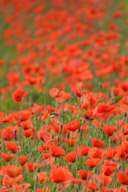

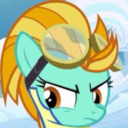

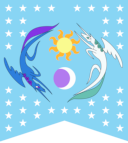

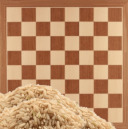
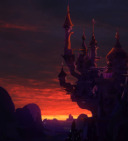

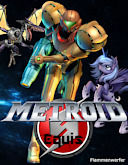
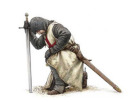

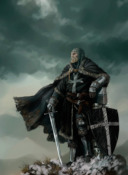



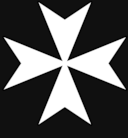

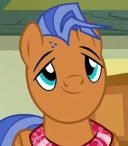

A fantastic and impactful collection of testimonies. Thank you for an exquisitely deep read.
Since this is pretty much the end of the story I'll say here: this was a good story. The framing device of interviewing different individuals works great to show many different perspectives and responses to the war. Each chapter was short (comically so in Big Mac's case) but they all felt full of detail. Overall, this was a fitting tribute. And I wouldn't mind you doing an epilogue showing what everyone did post war.
Thank you. So much.
9308676
9308643
9308627
Thank you all. And, per Grant's request, the blog link which gives the greater detail to the backstory of the war now also contains brief summaries of what happened to each of the ponies in the story after the war.
9303187
If it came from somewhere, it's a coincidence. That is to say, I thought of it on my own; I was feeling indirect at that time.
9302651
Yes. That's it.
Really, it's like an upstart country deciding to attack the US, and then the US decides that it's gonna come after them with its full wrath.
An opportunity for contemplation is always worthwhile.
Though I wonder, was the decision to leave the Equalist regime a faceless "other" intentional? or was this treatise merely focused on Equestrian matters? While the popular opinion would be to wholly blame Starlight, she never struck me as a warmonger. Perhaps she played the Marx to someone else's lenin?
9309203
You are correct in guessing that I left it vague on purpose. My reasons for doing so are many, among them the fact that tyranny wears many masks, but is always the same face underneath. The far Right and far Left often become identical in practice. Mussolini's Fascism, Hitler's National Socialism, and Stalin's Communism all did the same basic things - control the government, military, police, industry, press, education, and culture, all for the 'security and freedom' of the people. Different masks. Same face. I wanted people to think about how easy it is to get distracted by the label, when, in truth, it was what the label means in practice that truly matters. Also, the person responsible for starting the Equalist movement is ultimately irrelevant to this story. It's purpose was to examine the proper response to tyranny and the burdens of war. More than that would have been getting lost in the weeds.
9309376
Rightly said. It is not always necessary to know why something happened, 'tis enough to simply know that it did happen. And must not happen again.
Oh, and IMO stands for In My own Opinion. A rather common abbreviation, used to clarify that one is presenting a potentially controversial concept as their own idea rather than as a unilateral truth. Also used to preemptively head off criticism of said idea, as censoring someone's opinions is obviously a moral crime. It is fascinating to watch a new regional dialect of English emerge/mutate in real-time.
9309364
IMO = In My Opinion
It's USA Internet slang
This was an amazing read. It was interesting to read the varied opinions of those who fought in this war. And, frankly, the opinions that were given aren't that far from the opinions given by the veterans I have the privilege of meeting. I never got to meet a WW1 veteran, but I believe you did their stories justice. Thank you for writing this!
9310105
Thank you for your kind words. I just try to do justice to what veterans have told me. I am gratified that you believe that I have.
This was very well thought out and written story as your honor to the Veterans of The Great War.
Well done
9314451
Thank you